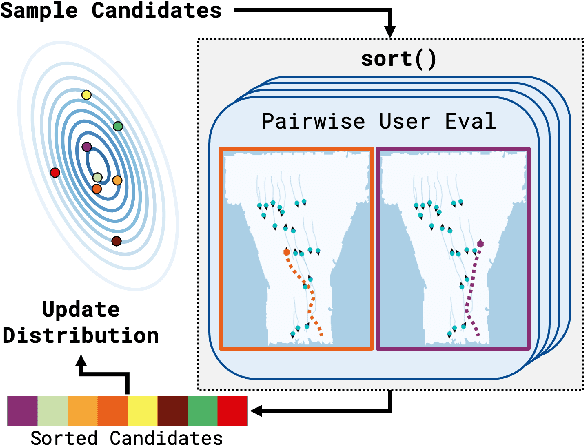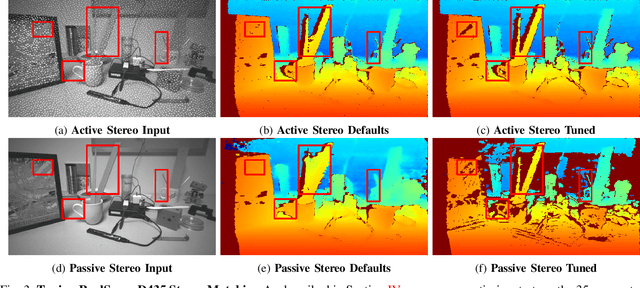Katherine Shih
Optimizing Algorithms From Pairwise User Preferences
Aug 08, 2023



Abstract:Typical black-box optimization approaches in robotics focus on learning from metric scores. However, that is not always possible, as not all developers have ground truth available. Learning appropriate robot behavior in human-centric contexts often requires querying users, who typically cannot provide precise metric scores. Existing approaches leverage human feedback in an attempt to model an implicit reward function; however, this reward may be difficult or impossible to effectively capture. In this work, we introduce SortCMA to optimize algorithm parameter configurations in high dimensions based on pairwise user preferences. SortCMA efficiently and robustly leverages user input to find parameter sets without directly modeling a reward. We apply this method to tuning a commercial depth sensor without ground truth, and to robot social navigation, which involves highly complex preferences over robot behavior. We show that our method succeeds in optimizing for the user's goals and perform a user study to evaluate social navigation results.
 Add to Chrome
Add to Chrome Add to Firefox
Add to Firefox Add to Edge
Add to Edge